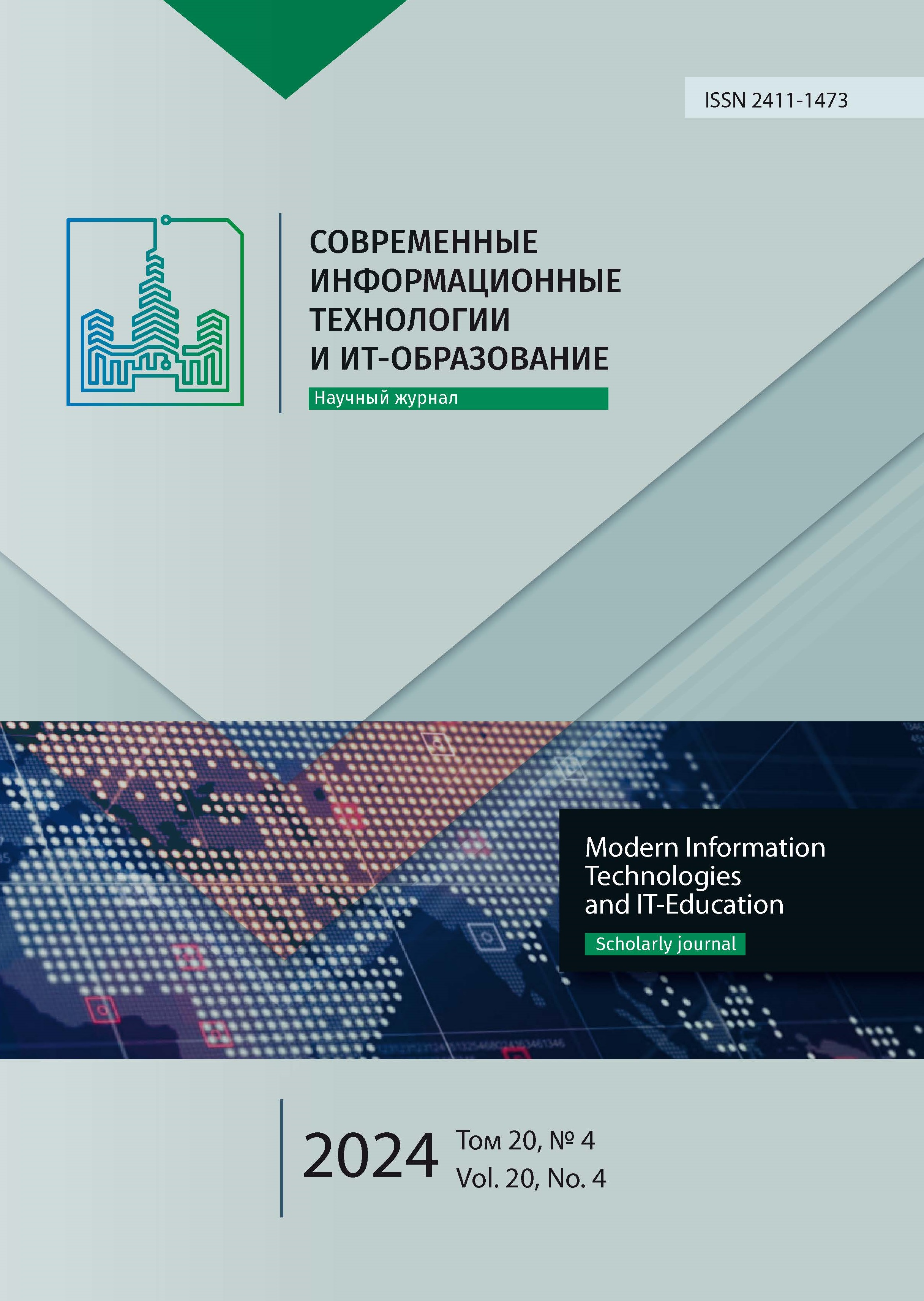Исследование усовершенствованного алгоритма парных переходов в программно-конфигурированных сетях на основе нечеткой логики
Аннотация
Технологии компьютерных сетей прочно закрепились во многих сферах жизни. Сейчас сложно представить современное производственное предприятие или образовательную организацию, не имеющую собственной локальной вычислительной сети, которая используется для обмена информацией между структурными подразделениями, обеспечения безопасности, проведения исследований и решения других различных задач. Для этого компьютерные сети должны обладать рядом характеристик, таких как надежность, безотказность, высокое быстродействие, эффективность, гибкость в управлении и т.д. Часть этих задач может быть успешно решена при применении программно-конфигурируемых сетей. При проектировании сети необходимо учитывать особенности той или иной сферы, для которой данная сеть будет предназначена, поскольку различные приложения могут генерировать разный вид сетевого трафика: текстовые данные, голос, видео. В данной статье описан процесс исследования усовершенствованного алгоритма парных переходов в программно-конфигурированных сетях на основе нечеткой логики, который может применяться для выполнения сетевой маршрутизации с обеспечением качества сервиса. Проведено экспериментальное исследование влияния параметров каналов связи на качество потоковой передачи видеотрафика по протоколу HTTP. На основе результатов исследования были разработаны системы нечеткого логического вывода для аппроксимации функции качества сервиса потоковой передачи видео. Приведено сравнение разработанных систем нечеткого вывода, имеющих различные функции принадлежности лингвистических переменных, а также разные типы нечеткого вывода. Разработанные системы нечеткого вывода были применены в работе усовершенствованного алгоритма парных переходов на основе нечеткой логики в программно-конфигурируемых сетях. Проведено сравнение работы разработанного алгоритма с работой классического алгоритма парных переходов.

Это произведение доступно по лицензии Creative Commons «Attribution» («Атрибуция») 4.0 Всемирная.
Редакционная политика журнала основывается на традиционных этических принципах российской научной периодики и строится с учетом этических норм работы редакторов и издателей, закрепленных в Кодексе поведения и руководящих принципах наилучшей практики для редактора журнала (Code of Conduct and Best Practice Guidelines for Journal Editors) и Кодексе поведения для издателя журнала (Code of Conduct for Journal Publishers), разработанных Комитетом по публикационной этике - Committee on Publication Ethics (COPE). В процессе издательской деятельности редколлегия журнала руководствуется международными правилами охраны авторского права, нормами действующего законодательства РФ, международными издательскими стандартами и обязательной ссылке на первоисточник.
Журнал позволяет авторам сохранять авторское право без ограничений. Журнал позволяет авторам сохранить права на публикацию без ограничений.
Издательская политика в области авторского права и архивирования определяются «зеленым цветом» в базе данных SHERPA/RoMEO.
Все статьи распространяются на условиях лицензии Creative Commons «Attribution» («Атрибуция») 4.0 Всемирная, которая позволяет другим использовать, распространять, дополнять эту работу с обязательной ссылкой на оригинальную работу и публикацию в этом журналe.













